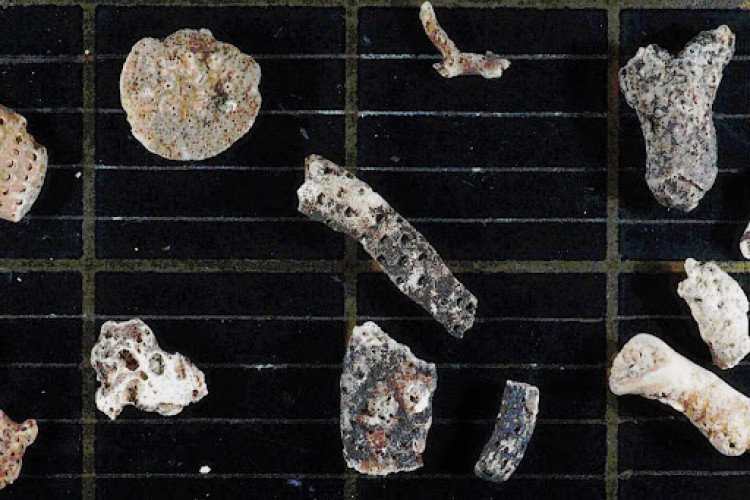The Life of a Football Fan with Pangeran Siahaan
Chandra Drews (C) talks to local football personality Pangeran Siahaan (P).
by Ken Jenie

C
Hello Pangeran. After reading about your work, it’s quite hard to pinpoint what it is you exactly do. In light of this, in your own words, how do you describe what you do?
P
I have many creative outlets but I prefer to be known as a writer. I’m actually a bit confused myself as to how I should describe myself (laughs). I write about football and politics, I’m a presenter for football events and a football commentator, too.
C
Where do you work as a commentator? Was that at TVRI?
P
For the TVRI gig I was only a host, as a commentator I work for BeInSports. That’s ongoing, so there will be a next season. As a columnist, I run bolatotal.com.
C
How did you get into football writing and commentating?
P
It’s actually a hobby of mine. The first time I wrote about football was…do you know about Super Soccer? They have highlights on the English leagues and I used to be editor there when it first started in 2009.
C
So you started from Super Soccer?
P
For football writing, yes. But for writing in general, I started ages ago. I was also at Press Association as their correspondent for Indonesian football for local and regional competitions.
C
Going back a bit, how did you get into football in general?
P
It’s a classic story, actually. My dad introduced me to football when I was very young – I think I was 5 years old. The first time I watched a full football match was when I was 7 years old for what I think was the 1994 World Cup in America. When I had nothing to do in the weekend, I just watched football at home. I also had a hobby for reading. Back then, I never thought that I would write and earn money from football. At first, it was only a hobby.
C
I also happen to know that you’re a Manchester United fan. When was the first time you watched United?
P
I only started watching club football in 1995, I think. I first watched during their losing season, when they didn’t win anything. I recall Unites losing 1-0 to Everton in the FA Cup final. I think that was the first time. Then David Beckham came and of course, everybody aspired to be him. And of course when we won the treble in 1999, that was naturally the pinnacle of my United supporting days.
C
Do you have a local team that you support?
P
PSMS Medan. For obvious reasons (laughs). Because it was my dad’s team. He was born in Sumatra and when he was in university at UI in the 70s. When PSMS was playing, he would watch them play. So yeah, the reasoning is very tribal (laughs).
C
Do you often watch PSMS Medan?
P
Very often. I once watched them play all the way in Bekasi where to stadium only had tribune seats. When I watched, there must’ve been around 100 people, mostly Batak people who work in Bekasi. They come in groups and they brought a boombox and everything. I’m not lying! During halftime, they would perform the Tortor [a traditional Batak dance]!
C
When was that exactly?
P
2011, I think. But yes, that’s the local team that I support. Because when you look at football abroad, supporters feel a close connection to their local team [the city that they live in], right? Because you would often watch them. For me, that isn’t the case. So for instance in Jakarta, I would watch Persija for entertainment purposes only. I don’t have a sense of ownership.
C
Is it common to follow teams from where your parents come from instead of your actual local team? Why is that?
P
Indonesia’s tribalism is one thing. Also, Jakarta is full of people from different places. But from what I’ve seen, there is no connection with the football club and the society. For example, if you’re a Liverpool fan, Liverpool FC or Everton would represent your city. With Milan, it’s Inter Milan and AC Milan. Here, the middle classes hardly even watch local football. So they don’t have an emotional connection with their team. But I feel this phenomenon only occurs in Jakarta. If I go to another city, say Malang, people from different social classes adopt Arema Malang as their team. The same goes for Bandung. I see on the streets there that it’s common for families to bring their children to matches. That’s something that I don’t see very often in Jakarta. That doesn’t mean that it doesn’t exist but it’s rarely seen. I think in other cities it happens more often. Maybe there’s a factor of closeness in those cities, compared with Jakarta.
C
Now there are lots of British people who complain, quite legitimately, that the working classes in the UK are “priced out” of football. Football it becoming a middle class thing, clearly reflected by the price of tickets. Do you see the same thing happening here?
P
No. I feel that the working classes are still the movers and shakers of (local) football. It should be like that everywhere. If we see here, tickets aren’t very expensive. Maybe for us, IDR 30,000 to 50,000 to watch a match is cheap. But for people of a lower social class, it may be a bigger burden. Yet they still don’t mind spending the money. For instance, I often see kids that are still in high school who would spare some of their lunch money to buy tickets. It doesn’t happen here in Jakarta so often. But if it’s the national team then it’s more likely. Ticket prices tend to go up when they play.
C
Is that already beginning to show?
P
Yes, it has. Actually, the classes that are placed at the top of the stadium are very far away but it’s still cheap. But the classes that are down below, the ones that are close to First Class or the VIP, is very expensive. But I don’t think it will happen here anytime soon, to the point where the working classes aren’t able to pay for tickets.
Although I must say, the football euphoria when the national team is playing, especially during AFF 2010 when Irfan Bachdim started to play – the (Bung Karno) stadium would fill expediently. All of a sudden, you’d see girls who are all dressed up to attend these matches. People who would not normally watch a football game would come. Yet in my opinion that’s also a good thing for local football. Because this shows that we can gain a new market and get people with bigger buying power to be interested and circulate the money within the sport.
C
Moving on slightly, how do you view the level of football punditry in Indonesia?
P
Well I can be subjective on this one as I’m also part of it, yet I can say I’m not satisfied. From what I saw, I wasn’t satisfied.
C
Why?
P
It’s so shallow. There is a lack of depth, that’s why. One reason why I decided I wanted to try sports broadcasting is because I wasn’t satisfied with what I saw. I felt that I could do better.
C
How is it shallow?
P
For example: on TV, before a match, they would usually ask, “what is Team A or Team B going to do?” How do we know what they’re going to do? (laughs). What we can do is to try and second-guess how these teams would set up and play the game. I feel local pundits are just rehashing things that are already available in newspapers and online. You have a limited amount of time, so why don’t you go for something deeper? And the host and pundits have to be experts, so they should engage in interesting interactions. You could provide the audience with interesting discussions, something meaningful. We need more of that in the world of sports broadcasting. Thinking about it, maybe one factor is habit.
C
So you think habit is the main reason for this?
P
Yeah. Well, if you look at the world of sports broadcasting in Indonesia, it’s actually a small and tight-knit environment. It’s pretty much always the same individuals. If you’re one of them, you feel like you don’t want to ever leave that position. But to break into the world is hard because it’s the same people. But I’ve seen that we don’t seem to like things that are too deep, things that are in depth. But the with the advent of the online media, we can get any information we want. So to me, there is no excuse for people who say they cant get a statistic from a match. Even the mistake during the starting line up can be found on twitter. There is no excuse to not be able to research anything in the football world. The only question is how deep do you want to dig. In the same time, I think the print and online medias are a lot more encouraging compared to television punditry. If you look at football blogs, it has grown immensely in the last 3-4 years. Everyone has blogs with topics that are so specific. And each of those people has their own expertise. For example: in the UK there is one blog that specifically talk about overseas football. It’s so detailed. And these English people are from all over the world and they make blogs for football in the country they live in. Indonesian football lovers are embracing that same trend, and that can only be a good thing.
C
What are the football blogs here focused on?
P
Right now, they aren’t yet very focused. But one thing for sure is that there is already a lot of enthusiasm. People want to write and they want to have an opinion. There are a couple of developing blogs. Have you heard of Pandit Football? It’s basically a football fan collective and they’re based in Bandung. They make something akin to Opta Statistics, yet they do that manually, which involved a lot of man-hours. I know those people quite well.
C
Do they write specifically about local football?
P
They write about both local and international football. But they write about local football in more depth. Do you know Paul Cumming? He’s an Englishman who moved to Indonesia in the 80s and was a top-flight coach here. He’s a football coach with lots of experience in Indonesia and he now unfortunately lives a hard life. He has virtually no money and is a very underappreciated football personality in Indonesia, mainly because the mainstream media have paid no attention to his plight and story. So these people at Pandit Football sought out and interviewed him. So in essence, these football blogs have more of an initiative to cover all these lost stories of Indonesia football. Another example is these kids in Yogyakarta who meet up at some coffee shop somewhere once a month to discuss specific football topics. They just don’t really have this in Jakarta at the moment. So what this shows is the advent of many football sub-cultures, which can only be a good thing.
C
Is this well received with local people? Who are their main readers?
P
Local people are their main readers. But this is funny: In Indonesia, I see that people are having difficulty differentiating which is news, which articles are features and which are opinions. So when I write my column, it’s often subjective but people still have trouble with that. And our main readers don’t like long-winded style of writing.
C
Why do you think that is?
P
Well I think it’s because there’s a lack of a reading culture in this country. They think, “oh it’s too long”. My column at Detik has to break into three to five pages because if it’s in one whole page, they get too overwhelmed. It’s a weird thing but it’s improving.
C
I read that you have a certain fascination with the cult side of football. Are you really a fan of European cult teams like St. Pauli? Is that true?
P
Well, politically speaking I tend to lean to the left anyway (laughs). St. Pauli used to be fascinating but not so much anymore because it’s too mainstream now and even many of their fans have protested the club’s management, as the club is turning more and more commercial. But I like the idea of people taking football into their own hands. That’s why I like the idea of FC United of Manchester [a football team established in protest of the commercialization of Manchester United] and I even donate money to them. Another German team that adopts this approach is FC Union Berlin, which is even more hipster as they’re less known (laughs).
C
Finally, do you have a funny or interesting anecdote of your experiences as a traveling fan?
P
Well, I almost got beaten up by a mob in Bandung!
C
You what?!
P
Well put it this way, I was almost involved in a very unfavorable position in Bandung. I was watching Persib Bandung vs Perijsa Jakarta. I’m not a fan of either team but I just wanted to watch a football game. I watched with my friends who are from Bandung and Persib won that match. Then immediately after the match, we went down towards the pitch and walked around it. Because my friends are from the area, I felt safe. Then they said they needed to use the toilet so I said that I’ll wait near the pitch. Now I don’t know whether it’s because of how I look or if I look like a hipster but all of a sudden I was approached by the guy wearing a St. Pauli jacket. He was speaking in Sundanese but I understood what he was saying. He asked me where I’m from and where I’m going but I didn’t know how to answer him and even if I did, he could tell that I’m from Jakarta due to my accent. In an instant he and his friends surrounded me and started to dish out all sorts of abuse and acted very menacing. Thank goodness that my friends came back, talked to them in Sundanese and they left me alone. I thought I was going be headlining the newspapers for being killed in the stadium, as that’s not unprecedented by any means (laughs). I usually bring my press card but I didn’t on that occasion. So yeah, that was my crazy experience.
C
Many thanks for sharing your stories with us, Pangeran!
P
You’re most welcome.











